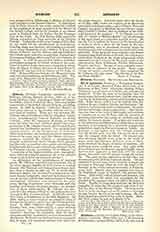

Ginoulhiac, JACQUES-MARIE-ACHILLE, a French bishop; b. at Montpellier (department of Herault), December 3, 1806; d. there, November 17, 1875. Immediately after his ordination to the priesthood (1830) he was appointed professor in the seminary at Montpellier, and later (1839) vicar-general at Aix. Consecrated Bishop of Grenoble in 1853, he was appointed the following year assistant to the pontifical throne, and knight of the Legion of Honor. At the Council of the Vatican, Ginoulhiac spoke publicly on philosophical errors (December 30, 1869), on the rule of faith (March 22 and April 1, 1870), and on the pope’s infallibility (May 23 and June 28, 1870). On this latter point he sided with the minority and left Rome before the session of July 18, in which the doctrine was defined. In 1870 he was transferred from Grenoble to the archiepiscopal See of Lyons. Fearing the Prussian invasion, the inhabitants of Lyons vowed to erect a basilica at Fourvieres if the city were spared. The written pledge, signed by thousands of inhabitants, was placed on the altar of the Blessed Virgin by the archbishop himself. In 1873, in fulfilment of this promise, he laid the cornerstone of the magnificent edifice which today stands on the hill of Fourvieres. While at Grenoble, Bishop Ginoulhiac wrote and published several letters and pastorals, especially on the condition of the Pontifical States (1860), on Renan’s “Life of Jesus” (1863), and on the accusations of the press against the Encyclical of December 8, 1864, and the Syllabus (1865). His works are “Histoire du dogme catholique pendant les trois premiers siecles de l’Eglise et jusqu’au concile de Nicee” (Paris, 1852, 1865); “Les epitres pastorales, ou reflexions dogmatiques et morales sur les epitres de Saint Paul a Timothee et a Tite” (Paris, 1866); “Le concile eecumenique” (Paris, 1869); “Le sermon sur la montagne” (Lyons, 1872); “Les origines du christianisme”, posthumous work published by Canon Servonnet (Paris, 1878)
C. A. DUBRAY

